4 Apr 2014 | About Index, Campaigns, Press Releases
World leaders must commit to keeping invasive surveillance systems and technologies out of the hands of dictators and oppressive regimes, said a new global coalition of human rights organizations as it launched today in Brussels.
The Coalition Against Unlawful Surveillance Exports (CAUSE) – which includes Amnesty International, Digitale Gesellschaft, FIDH, Human Rights Watch, the New America Foundation’s Open Technology Institute, Privacy International, Reporters without Borders and Index on Censorship – aims to hold governments and private companies accountable for abuses linked to the US$5 billion and growing international trade in communication surveillance technologies. Governments are increasingly using spying software, equipment, and related tools to violate the right to privacy and a host of other human rights.
“These technologies enable regimes to crush dissent or criticism, chill free speech and destroy fundamental rights. The CAUSE coalition has documented cases where communication surveillance technologies have been used, not only to spy on people’s private lives, but also to assist governments to imprison and torture their critics,” said Ara Marcen Naval at Amnesty International.
“Through a growing body of evidence it’s clear to see how widely these surveillance technologies are used by repressive regimes to ride roughshod over individuals’ rights. The unchecked development, sale and export of these technologies is not justifiable. Governments must swiftly take action to prevent these technologies spreading into dangerous hands” said Kenneth Page at Privacy International.
In an open letter published today on the CAUSE website, the groups express alarm at the virtually unregulated global trade in communications surveillance equipment.
The website details the various communication surveillance technologies that have been made and supplied by private companies and also highlights the countries where these companies are based. It shows these technologies have been found in a range of countries such as Bahrain, Brazil, Côte d’Ivoire, Egypt, Ethiopia, Libya, Nigeria, Morocco, Turkmenistan, UAE, and many more.
“Nobody is immune to the danger communication surveillance technologies poses to individual privacy and a host of other human rights. And those who watch today, will be watched tomorrow” sadi Karim Lahidji, FIDH President. “The CAUSE has been created to call for responsible regulation of the trade and to put an end to the abuses it enables” he added.
Although a number of governments are now beginning to discuss how to restrict this trade, concerns remain. Without sustained international pressure on governments to establish robust comprehensive controls on the trade based on international human rights standards, the burgeoning proliferation of this intrusive technology will continue – fuelling even further abuses.
“There is a unique opportunity for governments to address this problem now and to update their regulations to align with technological developments” said Tim Maurer at New America’s Open Technology Institute.
“More and more journalists, netizens and dissidents are ending up in prison after their online communications are intercepted. The adoption of a legal framework that protects online freedoms is essential, both as regards the overall issue of Internet surveillance and the particular problem of firms that export surveillance products,” said Grégoire Pouget at Reporters Without Borders.
“We have seen the devastating impact these technologies have on the lives of individuals and the functioning of civil society groups. Inaction will further embolden blatantly irresponsible surveillance traders and security agencies, thus normalizing arbitrary state surveillance. We urge governments to come together and take responsible action fast,” said Wenzel Michalski at Human Rights Watch.
The technologies include malware that allows surreptitious data extraction from personal devices; tools that are used to intercept telecommunications traffic; spygear used to geolocate mobile phones; monitoring centres that allow authorities to track entire populations; anonymous listening and camera spying on computers and mobile phones; and devices used to tap undersea fibre optic cables to enable mass internet monitoring and filtering.
“As members of the CAUSE coalition, we’re calling on governments to take immediate action to stop the proliferation of this dangerous technology and ensure the trade is effectively controlled and made fully transparent and accountable” said Volker Tripp at Digitale Gesellschaft.
NGOs in CAUSE have researched how such technologies end up in the hands of security agencies with appalling human rights records, where they enable security agents to arbitrarily target journalists, protesters, civil society groups, political opponents and others.
Cases documented by coalition members have included:
• German surveillance technology being used to assist torture in Bahrain;
• Malware made in Italy helping the Moroccan and UAE authorities to clamp down on free speech and imprison critics;
• European companies exporting surveillance software to the government of Turkmenistan, a country notorious for violent repression of dissent.
• Surveillance technologies used internally in Ethiopia as well as to target the Ethiopian diaspora in Europe and the United States.
21 Mar 2014 | News, Politics and Society, Qatar
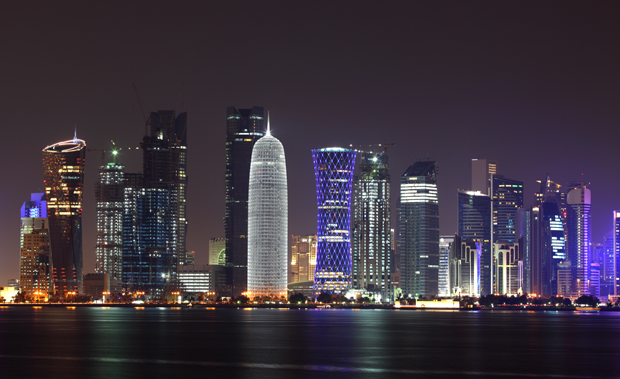
Freedom of speech clashing with commercial concerns has been an ongoing theme for many media and internet companies operating on an international stage, but it’s rare that a country’s liberal approach to expression is presented, in itself, as a prime investment opportunity.
Now Qatar, the richest country in the world, is positioning itself as a liberal alternative to the other resource-rich Gulf states – as revealed in an op-ed by the CEO of a premier London-listed Qatari investment fund.
The chairman of the Qatar Investment Fund PLC, Nick Wilson, authored an article this week on ArabianBusiness.com, claiming the country “has a habit of pushing its progressive agenda, to the irritation of its more conservative neighbouring states elsewhere in the Gulf Co-operation Council.”
Qatar Investment Fund manages approximately £200m in assets – investing into Qatari equities and employing dozens of fund managers. Its website trumpets Qatar as one of the worlds fastest growing economies, as well as pointing to its hugely lucrative gas exports.
But in this piece, the investment managers emphasised a different aspect of Qatar – the the “liberal minded” Al Jazeera TV network and an apparent commitment to free speech, especially when compared with its Gulf neighbours.
“We’ve seen the consequences of blocking access to information in other countries of the region.”
“Qatar is a bastion of free speech – and the flow of information should help to create a benign environment for investors.” he added.
The piece also pointed towards progressive women’s rights in Qatar, noted the political unpredictability of the region, but concluded that Qatar was “less frightened of change,” and “safe for business.”
As Wilson mentioned, Qatar now faces an unprecedented rift with the other GCC members – in particular Saudi Arabia, Bahrain and UAE who dramatically withdrew their envoys from Doha recently. He noted that Qatar had not withdrawn their envoys in retaliation, suggestive of their “liberal” tendencies.
But Qatar’s support for the Muslim Brotherhood both in Egypt and the Gulf, has set it contrary to GCC security policy – with UAE and Saudi Arabia having designated the Brotherhood “a terrorist organisation.”
And Yusuf al-Qaradawi, a provocative Islamist preacher and key Muslim Brotherhood member, is based in Doha. He presents a weekly show and sermon on the Arabic version of Al Jazeera, reportedly watched by 20 million viewers.
The outspoken preacher recently incensed the UAE by denouncing the Emirates political policies as “un-Islamic,” in response to an Islamist crackdown orchestrated by UAE’s sophisticated state security apparatus.
Qatar, as Wilson noted in his article, has irked its neighbours by allowing al Jazeera, al Qaradawi and the Muslim Brotherhood to be supported by Qatar’s extensive financial resources.
It now faces potential sanctions from Saudi Arabia, and Bahrain has even called for the GCC to be split up – unless Qatar shuts down the al-Jazeera TV network, ejects al-Qaradawi and stops support for Islamists.
While secretive Qatar is keen to maintain its supportive stance of the Brotherhood, it’s unclear whether freedom of expression comes into play or if there are wider geopolitical considerations at play.
More likely it is the latter – analysts reaction to the Qatar Investment Fund’s glowing appraisal of Qatar’s “liberal” values has been muted.
“Qatar may be a freer society than some of it’s neighbours, but this is hardly a useful measure,” says David Wearing, a PhD candidate and Gulf Expert at SOAS University in London.
“Objectively, it is an autocratic monarchy; not liberal, and certainly not democratic. Some space exists in Qatar for criticism of other regional governments, but not of the Doha regime itself.”
Wearing pointed to the case of Mohammed al-Ajami who was sentenced to fifteen years imprisonment in October 2013, for “insulting the emir.”
Nader Hassan, a professor at the University of South Alabama, thinks the op-ed may fit into a broader PR narrative which is sanitising Qatar’s human rights reputation.
“Qatar has been playing a very skillful public relations game,” he told Index, “portraying itself as a beacon of free speech and press freedom in the region.”
“Compared to its more powerful neighbor, Saudi Arabia, this may be true. However, there are significant restrictions on press freedom in Qatar.
“Al Jazeera, for example, almost never carries any critical pieces on Qatar, such as the abuse of migrant workers.”
Hassan admitted that some Al Jazeera pieces favoured openness and journalistic professionalism- but concluded that calling the network “liberal” was “far from the truth.”
This article was posted on 21 March 2014 at indexoncensorship.org
20 Mar 2014 | Indonesia, News
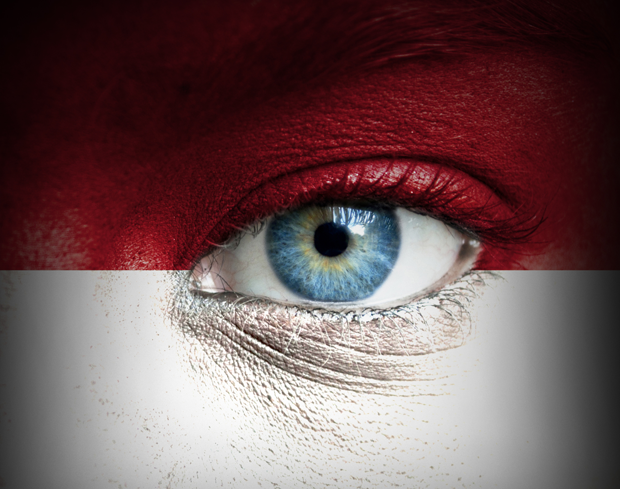
(Photo illustration: Shutterstock)
Human rights organisations suspect a live YouTube broadcast detailing abuses by the Indonesian government may have been the real reason behind “technical difficulties” at an environmental conference in Oregon.
Two Papua tribesmen had travelled to Oregon specially for the Public Interest Environmental Law Conference in Oregon, “the world’s most important environmental law conference.”
A live broadcast of the conference mysteriously went silent when the tribesmen started telling the audience about human rights violations by the Indonesia government, perpetrated in their homeland
The pictures on the slideshow, illustrating their points, were behind them and still visible, although their commentary was not audible to anyone listening from home.
Survivor International, who also sent a delegate to the conference, told Index on Censorship that they suspect the attack was a hack, and that their organisation has been targeted by Indonesian agents in the past.
“In 2010, our website was taken offline,” said Sophie Grig, South East Asia Researcher. “We had posted a video of Indonesian soldiers torturing Papuan trible people. Other groups who also posted the video were hacked.”
The attack lasted for two days, during which all websites who had posted the video were bombarded by thousands of requests from thousands of computers worldwide, and the German police began an investigation after one of the hacked groups, based in Germany, made a complaint.
At the time, Survival’s Director Stephen Corry commented ‘This isn’t a couple of geeks in a shed, it’s an expensive and sophisticated attack amounting to cyberterrorism. The damage to Survival International may be substantial but is of course nothing compared to that inflicted on West Papuan tribes.
He added “This is a struggle for the survival of the one million oppressed tribespeople in Indonesian West Papua.”
The two Papuans who attended the conference in Oregon, are members of the Amungme tribe, whose land is home to Grasberg, a mining facility operated by 19,500 employees.
“In the area around the mine, we’ve seen forced displacements, reports of torture and illegal detention by the Indonesian military” said Grig. “We also have strong concerns about the environmental impact.”
Positioned on Papua’s highest mountain, Grasberg is home to the largest gold mine in the world, as well as the third largest copper mine in the world. It produces around
Local charities, as well as international environmental charities, are concerned about the increasing number of land slides and acidifying waste products in local water sources, although the mines operators, Freeport and Rio Tinto, insist their operations fit within international regulations.
Indonesia has occupied Papua (the western half of the island of New Guinea) since 1963, and more than 100,000 Papuans are believed to have been killed since then, many at the hands of the Indonesian military. The government hold a 10% stake in one of the companies operating the mine.
Although it is unclear which software was used to execute this hack, according to Amnesty International in Indonesia, the Papuan military have already purchased invasive internet monitoring technology from Gamma International, a UK-based company. Gamma International manufacture FinnFisher, software which is capable of monitoring all internet communications in a country. The software has been used by repressive regimes including Bahrain, UAE, Turkmenistan, Egypt (under Mubarak, although it is unclear whether the software is still in use).
Andreas Harsono, Indonesia Researcher for Amnesty International, also told Index about some of the human rights abuses he regularly observes in Papua
“I mainly deal with cases where freedom of expression is being denied, as well as impunity amongst the military, police and prison wardens,” he said, “There are also extra judicial killings,” he adds.
There are believed to be over seventy political prisoners held in brutal Indonesian prisons – some serving up to twenty years.
Sophie Grig from Survivor International warned Index
“West Papuans are no strangers to having their voices silenced. Journalists are effectively banned from the region, other than in exceptional circumstances and where they are accompanied by Indonesian government minders. People are imprisoned when their only crime is to raise the banned West Papuan flag, or to speak out against military atrocities and the Indonesian rule of West Papua.”
This article was published on 19 March 2014 at indexoncensorship.org
8 Mar 2014 | Azerbaijan News, News
International Women’s Day is a day to remember violence against women, the education gap, the wage gap, online harassment, everyday sexism, the intersection between sexism and other -isms, and a whole host of other issues to make us realise we’ve still got a long way to go. A day to demand continued progress, and a day to pledge to work to achieve it.
But it is also a day to celebrate. To appreciate the fantastic achievements that are made every day, everywhere, by women from all walks of life. It’s a day to be grateful to the women who dedicate their lives to fighting on the front lines to protect rights vital to us all. We want to shine the spotlight on women who have stood up for freedom of expression when it’s not the easy or popular thing to do, against fierce opposition and often at great personal risk. The following eight women have done just that. We know there are many, many more. Tell us about your female free speech hero in the comments or tweet us @IndexCensorship.
Meltem Arikan — Turkey
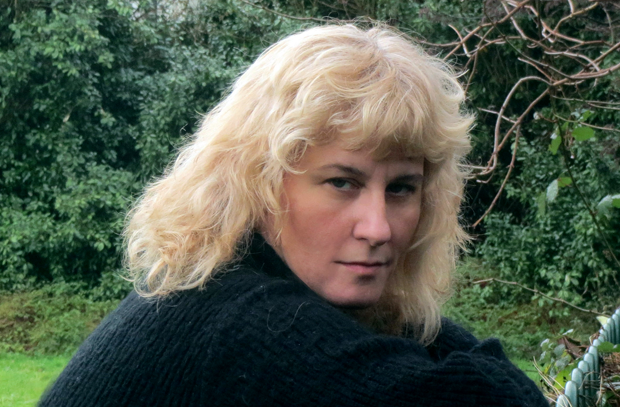
Meltem Arikan
Arikan is a writer who has long used her work to challenge patriarchal structures in society. He latest play “Mi Minor” was staged in Istanbul from December 2012 to April 2013, and told the story of a pianist who used social media to challenge the regime. Only a few months after, the Gezi Park protests broke out in Turkey. What started as an environmental demonstration quickly turned into a platform for the public to express their general dissatisfaction with the authorities — and social media played a huge role. Arikan was one of many to join in the Gezi Park movement, and has written a powerful personal account of her experiences. But a prominent name in Turkey, she was accused of being an organiser behind the protests, and faced a torrent of online abuse from government supporters. She was forced to flee, now living in exile in the UK.
I realised that we were surrounded, imprisoned in our own home and prevented from expressing ourselves freely.
Anabel Hernández — Mexico

Anabel Hernández (Image: YouTube)
Hernández is a Mexican journalist known for her investigative reporting on the links between the country’s notorious drug cartels, government officials and the police. Following the publication of her book Los Señores del Narco (Narcoland), she received so many death threats that she was assigned round-the-clock protection. She can tell of opening the door to her home only to find a decapitated animal in front of her. Before Christmas, armed men arrived in her neighbourhood, disabled the security cameras and went to several houses looking for her. She was not at home, but one of her bodyguards was attacked and it was made clear that the visit — from people first identifying themselves as members of the police, then as Zetas — was because of her writing.
Many of these murders of my colleagues have been hidden away, surrounded by silence – they received a threat, and told no one; no one knew what was happening…We have to make these threats public. We have to challenge the authorities to protect our press by making every threat public – so they have no excuse.
Amira Osman — Sudan
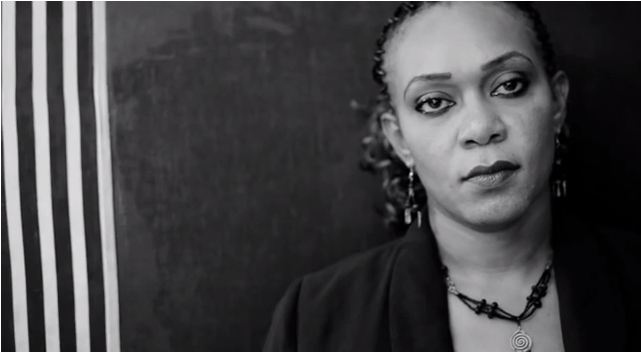
Amira Osman (Image: YouTube)
Amira Osman, a Sudanese engineer and women’s rights activist was last year arrested under the country’s draconian public order act, for refusing to pull up her headscarf. She was tried for “indecent conduct” under Article 152 of the Sudanese penal code, an offence potentially punishable by flogging. Osman used her case raise awareness around the problems of the public order law. She recorded a powerful video, calling on people to join her at the courthouse, and “put the Public Order Law on trial”. Her legal team has challenged the constitutionality of the law, and the trial as been postponed for the time being.
This case is not my own, it is a cause of all the Sudanese people who are being humiliated in their country, and their sisters, mothers, daughters, and colleagues are being flogged.
Fadiamata Walet Oumar — Mali
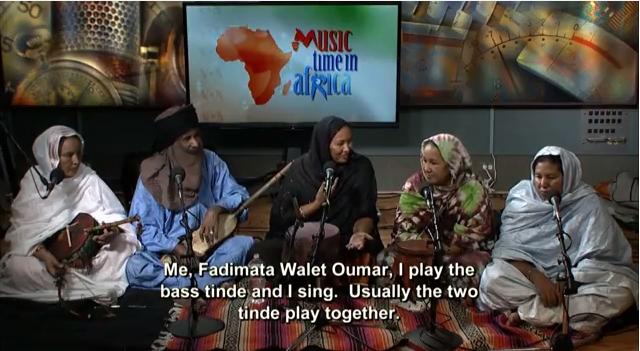
Fadiamata Walet Oumar with her band Tartit (Image: YouTube)
Fadiamata Walet Oumar is a Tuareg musician from Mali. She is the lead singer and founder of Tartit, the most famous band in the world performing traditional Tuareg music. The group work to preserve a culture threatened by the conflict and instability in northern Mali. Ansar Dine, an islamists rebel group, has imposed one of the most extreme interpretations of sharia law in the areas they control, including a music ban. Oumar believes this is because news and information is being disseminated through music. She fled to a refugee camp in Burkina Faso, where she has continued performing — taking care to hide her identity, so family in Mali would not be targeted over it. She also works with an organisation promoting women’s rights.
Music plays an important role in the life of Tuareg women. Our music gives women liberty…Freedom of expression is the most important thing in the world, and music is a part of freedom. If we don’t have freedom of expression, how can you genuinely have music?
Khadija Ismayilova — Azerbaijan

Khadija Ismayilova
Ismayilova is an award-winning Azerbaijani journalist, working with Radio Free Europe/Radio Liberty. She is know for her investigative reporting on corruption connected to the country’s president Ilham Aliyev. Azerbaijan has a notoriously poor record on human rights, including press freedom, and Ismayilova has been repeatedly targeted over her work. She was blackmailed with images of an intimate nature of her and her boyfriend, with the message to stop “behaving improperly”. This February, she was taken in for questioning by the general prosecutor several times, accused of handing over state secrets because she had met with visitors from the US Senate. In light of this, she posted a powerful message on her Facebook profile, pleading for international support in the event of he arrest.
WHEN MY CASE IS CONCERNED, if you can, please support by standing for freedom of speech and freedom of privacy in this country as loudly as possible. Otherwise, I rather prefer you not to act at all.
Jillian York — US
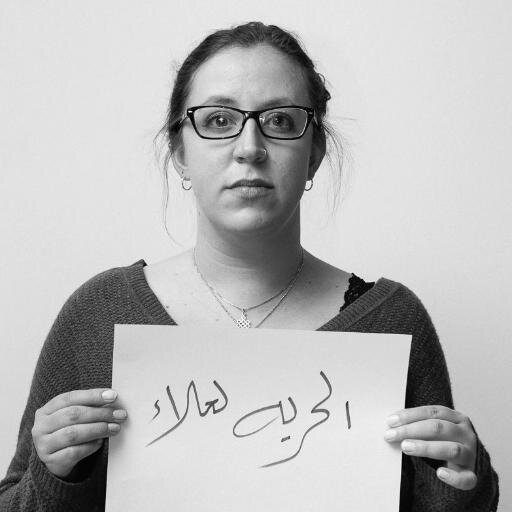
Jillian York (Image: Jillian C. York/Twitter)
Jillian York is a writer and activist, and Director of Freedom of Expression at the Electronic Frontier Foundation (EFF). She is a passionate advocate of freedom of expression in the digital age, and has spoken and written extensively on the topic. She is also a fierce critic of the mass surveillance undertaken by the NSA and other governments and government agencies. The EFF was one of the early organisers of The Day We Fight Back, a recent world-wide online campaign calling for new laws to curtail mass surveillance.
Dissent is an essential element to a free society and mass surveillance without due process — whether undertaken by the government of Bahrain, Russia, the US, or anywhere in between — threatens to stifle and smother that dissent, leaving in its wake a populace cowed by fear.
Cao Shunli — China
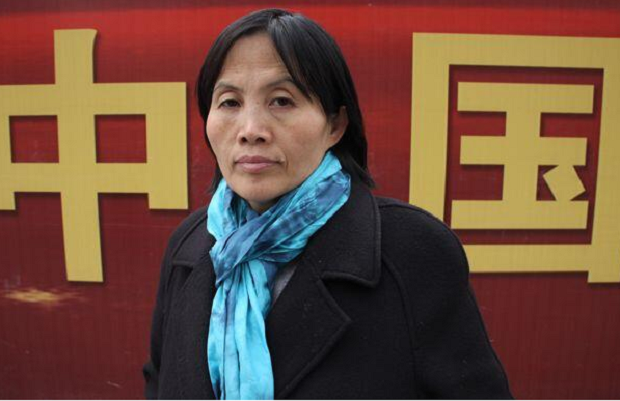
Cao Shunli (Image: Pablo M. Díez/Twitter)
Shunli is an human rights activist who has long campaigned for the right to increased citizens input into China’s Universal Periodic Review — the UN review of a country’s human rights record — and other human rights reports. Among other things, she took part in a two-month sit-in outside the Foreign Ministry. She has been targeted by authorities on a number of occasions over her activism, including being sent to a labour camp on at least two occasions. In September, she went missing after authorities stopped her from attending a human rights conference in Geneva. Only in October was she formally arrested, and charged for “picking quarrels and promoting troubles”. She has been detained ever since. The latest news is that she is seriously ill, and being denied medical treatment.
The SHRAP [State Human Rights Action Plan, released in 2012] hasn’t reached the UN standard to include vulnerable groups. The SHRAP also has avoided sensitive issue of human rights in China. It is actually to support the suppression of petitions, and to encourage corruption.
Zainab Al Khawaja — Bahrain
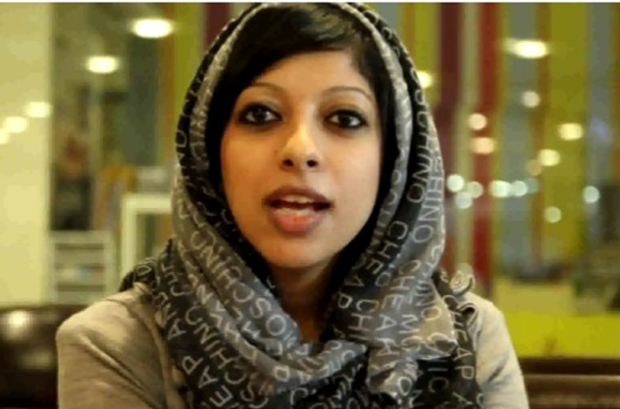
Zainab Al Khawaja
Al Khawaja is a Bahraini human rights activist, who is one of the leading figures in the Gulf kingdom’s ongoing pro-democracy movement. She has brought international attention to human rights abuses and repression by the ruling royal family, among other things, through her Twitter account. She has also taken part in a number of protests, once being shot at close range with tear gas. Al Khawaja has been detained several times over the last few years, over “crimes” like allegedly tearing up a photo of King Hamad bin Isa Al Khalifa. She had been in jail for nearly a year when she was released in February, but she still faces trials over charges like “insulting a police officer”. She is the daughter of prominent human rights defender Abdulhadi Al Khawaja, who is currently serving a life sentence.
Being a political prisoner in Bahrain, I try to find a way to fight from within the fortress of the enemy, as Mandela describes it. Not long after I was placed in a cell with fourteen people—two of whom are convicted murderers—I was handed the orange prison uniform. I knew I could not wear the uniform without having to swallow a little of my dignity. Refusing to wear the convicts’ clothes because I have not committed a crime, that was my small version of civil disobedience.
This article was posted on March 8, 2014 at indexoncensorship.org










